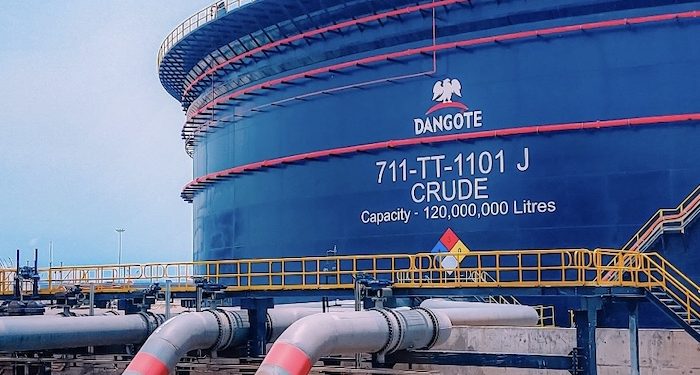The Dangote Petroleum Refinery, located in Lekki, Lagos, has made a significant move to supply 60 million litres of Premium Motor Spirit (PMS), also known as petrol, on a weekly basis to members of the Independent Petroleum Marketers Association of Nigeria (IPMAN). This deal, which amounts to 240 million litres of petrol per month, comes as part of efforts to support the supply of fuel across the country, and is expected to help stabilize the market in light of ongoing price fluctuations.
According to a report from IPMAN, the refinery’s offer is dependent on the level of patronage and the logistics of the sector. The association added that the supply will give its members greater access to fuel, contributing to better distribution across Nigeria’s vast network of fuel stations.
The Lekki-based Dangote Refinery, which is one of the largest single-train refineries in the world with an investment value of approximately $20 billion, is also working to ramp up its crude oil imports and production capacity. Industry insiders say the refinery’s involvement in the fuel supply chain will likely reduce the country’s reliance on fuel imports, which has long been a major drain on Nigeria’s foreign exchange reserves.
In recent weeks, the Nigerian fuel market has witnessed a sharp decline in petrol prices, thanks to increasing competition among domestic and foreign suppliers. The deregulation of the downstream oil sector, which removed government subsidies and allowed market forces to dictate prices, has created a more competitive environment. The Nigerian National Petroleum Company (NNPC) Limited and other private marketers are now actively involved in fuel imports, with over two billion litres of petrol having been imported into Nigeria over just 42 days.
Chinedu Ukadike, the National Publicity Secretary for IPMAN, emphasized that the association’s members have the flexibility to lift any quantity of petrol allocated to them by the Dangote Refinery, and that independent marketers continue to be the largest distributors of imported fuel across the country. He added that the role of independent marketers in the supply chain has become even more critical as Nigeria works towards stabilizing its fuel markets.
The increased competition brought about by deregulation, along with the refinery’s participation in the supply chain, is expected to exert downward pressure on fuel prices, providing relief for Nigerians struggling with high petrol costs. However, some analysts warn that long-term sustainability of lower prices will depend on the efficiency of the supply chain and the country’s ability to further ramp up domestic production.
The Dangote Refinery’s entry into the fuel supply market is part of a broader effort to address Nigeria’s fuel shortage, which has plagued the country for years. As the refinery begins to ramp up production, stakeholders are hopeful that it will reduce the nation’s dependency on imports, ensuring more stable fuel prices in the future.















